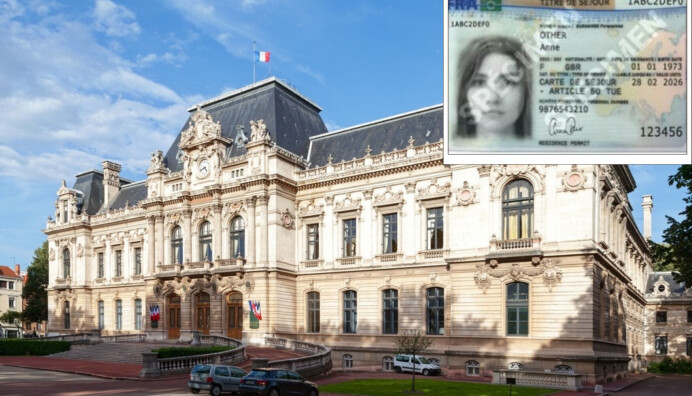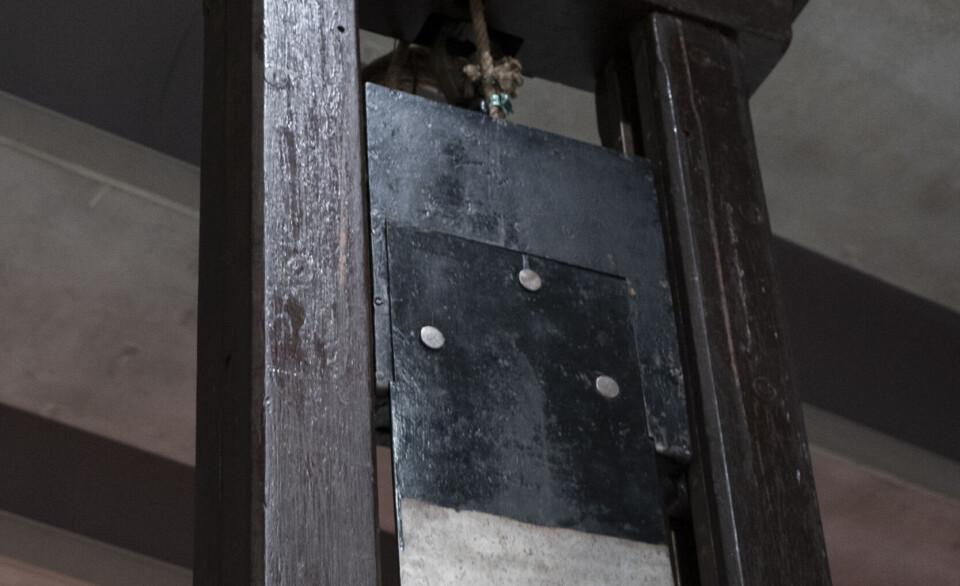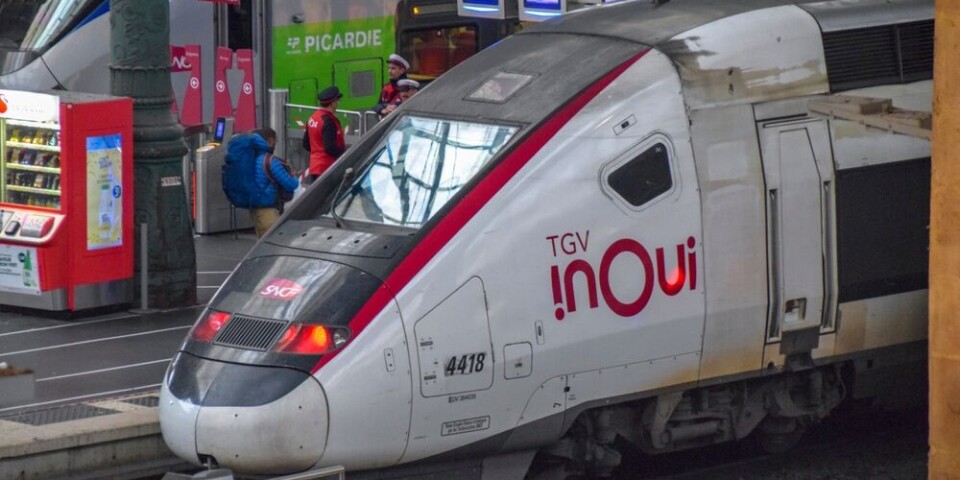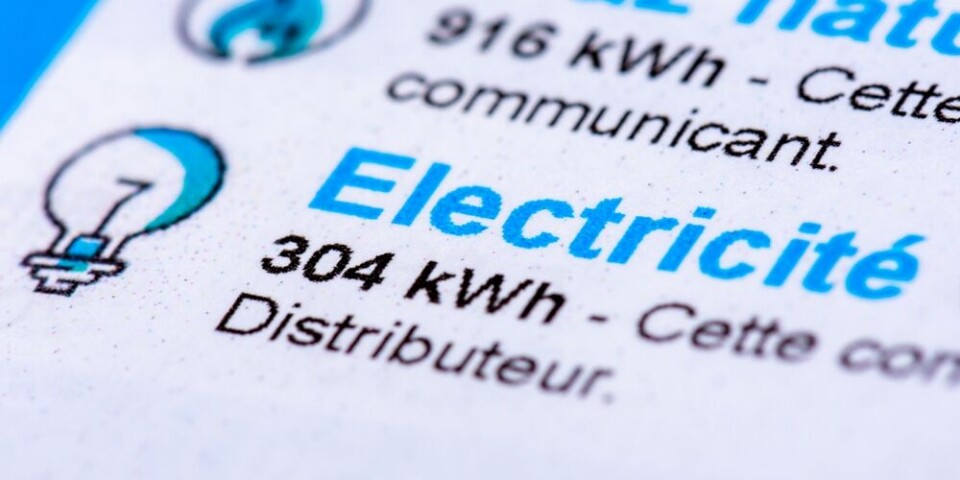-
Photos: tens of thousands of migrating cranes fly across France
The birds can be seen passing from the north-east to the south-west of the country
-
Nine face suspended prison sentences for online attacks targeting Brigitte Macron
Defence lawyers deny that the accused acted as a ‘mob’. Mrs Macron’s daughter says the campaign badly affected her mother
-
Why farmers plan to block A10 and A71 motorways in France this weekend
Action comes after the publication of a study on water usage
EU needs to market itself better
Nick Inman argues that a union of 28 countries, speaking 24 languages, has a future – if it can overcome the national jealousies that fuelled Brexit

It is not that the European Union does not work. Eurosceptics never tire of saying that it cannot work.
It is dysfunctional and unfixable, they say. To expect 28 countries, speaking 24 languages and drawing on different cultural traditions, to co-operate in peace and harmony is madness.
All the signs, they point out, tell us that economic and political convergence is impossible. The euro has lurched from crisis to crisis and is bound to fail as a currency and leave misery in its wake.
Sooner or later, the argument goes, voters will realise that the convergence of countries saps national identity and preys on weak economies for no gain.
Disillusionment results in populist-nationalist parties coming to power with a commitment to withdraw from and, if possible, break up the Union. This is the anti-EU thesis.
The great surprise of Brexit, however, has been that 27 diverse states with wildly differing interests were able to maintain a united front against one recalcitrant during three years of existential crisis.
European unity has shown itself to be more than an impossible dream.
There are no signs of imminent Swexits, Grexits or Spexits. There are no crowds on the streets of European cities demanding their governments follow Britain’s lead in the name of liberty.
Rather the opposite: if anything, Brexit has reminded Europeans they need to think much harder about how to nurture “a closer, stronger and more democratic unity” between member states.
Which begs the question: can 28 countries really work effectively together?
I put this to Simon Usherwood, deputy director of The UK in a Changing Europe, an association of academics that aims to keep debate about the EU centred on evidence rather than ideology.
He said: “The very pragmatic answer is ‘yes – these countries can work together’ because they do. It’s easy to just see the problems, the crises that exist around democracy, immigration or the inter-national system at large but these over-shadow the extensive day-to-day running of the EU that works surprisingly well.
“The real question is how to match capabilities and expectations.
“The capability to do things exists but not to do everything; and there has been a persistent problem with what people think the EU can and/or should do, which is not in line with what is possible.
“All political organisations have the same problem of communicating a realistic view of what a political body can do.”
Margaret Hodge MP, former chair of the public accounts committee, has seen the European Parliament at work and concluded: “Having 28 different countries all wanting to get their five minutes-worth of entry into the debate meant you never really got any interaction or real debate going on the issues. It was just that everybody had their say and somehow the deal was done outside the room, anyway.”
Co-habitation requires a mutual belief that all problems can be resolved. There are inevitably problems when so many states try to co-operate with each other on so many matters, as we have heard throughout the Brexit debate and from candidates in the French presidential election of 2017.
The Greek debt crisis was a shock to the Euro body politic; democracy is supposed to be under threat in Hungary; populists everywhere are eating away at the complacency of “elites”.
These can be used to prove the EU is stumbling towards its demise, or presented as proof that solutions can be worked out.The biggest threat to European harmony comes from people who feel they have nothing to gain from the bloc. The EU plays down levels of anti-EU sentiment but it takes an interest in case a vociferous minority turns into a vote-winning majority.
Last year, the Commission published a report on The Geography of EU Discontent, which warned uneven development across the bloc was creating “left-behind places”.
Resentment breeds in such locations, and the idea that abolishing the European Union would end immigration and unemployment finds willing listeners.
The guilty secret of the EU is that some of its core policies are bound to create winners and losers. The freedom for workers to move is a boon for those who are young, mobile and with skills in demand, but it generates two types of problem.
One is that when migrants leave home in eastern Europe to work in the richer economies of the west, the result is a brain drain and depopulation in their home countries, exacerbating the effects of economic decline so that the poor become poorer.
Malika Hattab-Christmann, an economist at Paul Sabatier University, Toulouse, said: “The challenge for the EU is that conditions are different in member countries.
“They have unequal levels of development; higher or lower salaries; more or less competitive economies, and so on.
The EU has proved more interested in liberalising markets in the face of globalisation than in the needs of workers and their rights.” This leads to the other type of problem – “social dumping”, in which migrant workers from poorer countries are willing to work longer hours for less pay and under less stringent conditions than local workers. This, in turn, depresses salaries and makes contracts less secure.
The European Commission’s answer is that we must have faith and keep going in the same direction. “If differences between member states become smaller,” said a spokesman for the Commission, “there’s less fertile ground for social dumping.”
The idea is that – over the long term – salaries will rise everywhere. Mr Usherwood points to Ireland, which has gone from a country of emigration to a prosperous economy attracting migrant workers.
In other words, the people of Europe are asked to stick with the project for long-term gain. Eventually, the Union will become a cluster of states which can achieve economies of scale that allow Europe to compete with the USA and China.
The challenge is to get this message not to governments but to the people of Europe.
Close co-operation can work between 27 or 28 countries, given good will and flexibility, but, as Brexit has shown, many Europeans must be convinced that it is in their common interests to move in the same direction and accept inconveniences in return for benefits in the future.
There has to be an answer to Europhobes who argue that they are being asked to sacrifice national autonomy and identity on the altar of integration.
The debate about integration is often entirely about economics, with a large dash of scaremongering. But there is more to international neighbourliness than that.
To keep ordinary Europeans on board, there needs to be greater emphasis on social and cultural integration. European convergence will depend on European empathy.
An example is the Erasmus programme, under the terms of which students spend a year in another country, learning (apart from the official curriculum) that young people everywhere generally have the same concerns and aspirations.
A true European union may only be forged by future generations, for whom national jealousies are reduced to irrelevancies in an increasingly globalised world.
Another way to look at it is that combatting climate change is going to take some serious international co-operation.
The EU is far from perfect and its members far from aligned in all things but, warts and all, it’s a start towards implementing decisions on behalf of a threatened world.
























